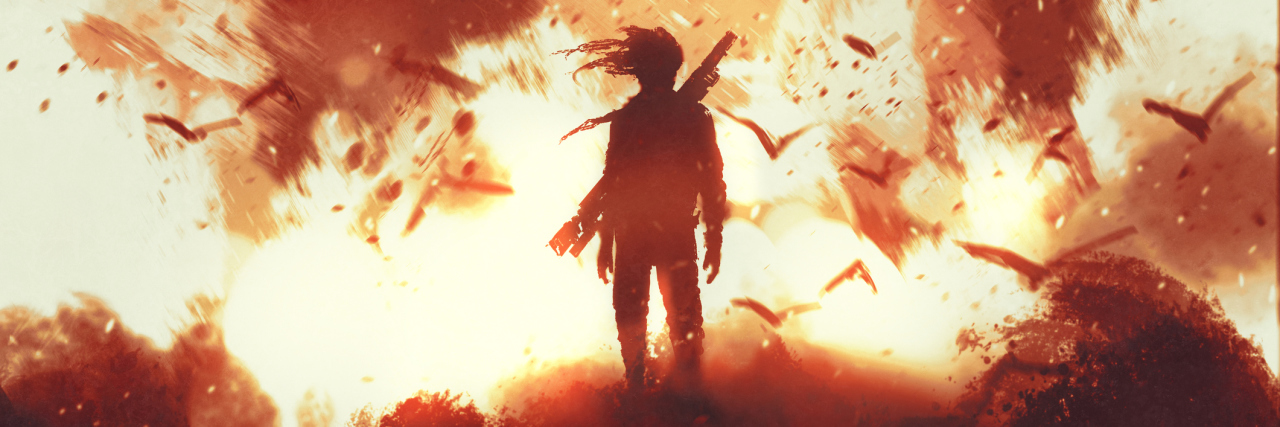All the mental health professionals say that recovery is a journey, but I hate that image. I feel like it is more like a war. Each challenge is a battle, and some are lost with significant casualties and others are won with great celebration.
Following my latest discharge from hospital I avoided all battles, I sacrificed winning to protect myself from losing. Just over a week after I returned home, family obligation forced the first battle. It was an extended family lunch with the in-laws, celebrating the birthday of the matriarch. Going into this battle we were being realistic, preparing the best we could and planning for all situations; leaving early if I couldn’t manage, what we would say to family members when they asked questions, and who were safe people to sit with.
Surprisingly, the drive to lunch didn’t bring the anticipation and anxiety usually experienced as the battle approaches. As the autumn colors increased in density, the trees provided a protective shield overhead as we drove further from the city and closer to our destination. The tree’s tranquillity radiated into me, bringing me in harmony with nature and keeping the enemy’s army at bay. That is, until we arrived at lunch. Lunch was at a restaurant which was both a blessing and a curse. It allowed for convenience and a firm finish time; however, it lacked the comfort of safe spaces tucked away in someone’s garden or spare room when things get hard. Once we got out of the car, I was eager to get inside. The anticipation felt like a greater discomfort than the lunch itself, or maybe it was a matter of the sooner in, the sooner out.
The biggest battle — what was causing the most anxiety — was the interactions with the in-laws. I had been more open on social media about my recent struggles and hospitalization than I have previously, with the hope to combat the shame that comes in the weeks following. I didn’t consider the in-person conversations that may follow, let alone the apprehension of them occurring.
Unexpectedly this battle was won. Family members did ask how I was going, but I wasn’t made to feel fragile or different. Their questions were simple, and they looked relieved and joyous that I was home and doing well. Their celebration of my recovery didn’t make me feel like they didn’t understand, or they were trying to make themselves feel better by believing that I was doing well. They truly understood how unwell I had been, but that didn’t change their view of me or how much they cared. This is what a family should be like. Unfortunately, they aren’t always, and that’s why they feel like one of the many battles in the war of recovery.
What I didn’t realize on this day was that the battle wasn’t a battle at all. I thought the battle was against the people I was seeing; I had to brave their questions and defend my heart from their comments or nonverbal cues. But they were all on my side. They all loved me and wanted to see me get better — they weren’t against me. This is what mental illness can do; it can make you think that everyone is against you or thinks badly of you, that what they say isn’t genuine and that you are all alone in this world. But that isn’t true. The battle is never against the people in your circle, it is against the false beliefs that your mental illness has you believe.
As I left that day, I was filled with the peace and joy from an unexpected victory. Even as we left the calming protection of the trees and entered the chaos of traffic and main roads, I still felt that peace over me, the lasting peace of connection and community.
A version of this article was previously published on the author’s blog.
Getty Images illustration via Grandfailure

